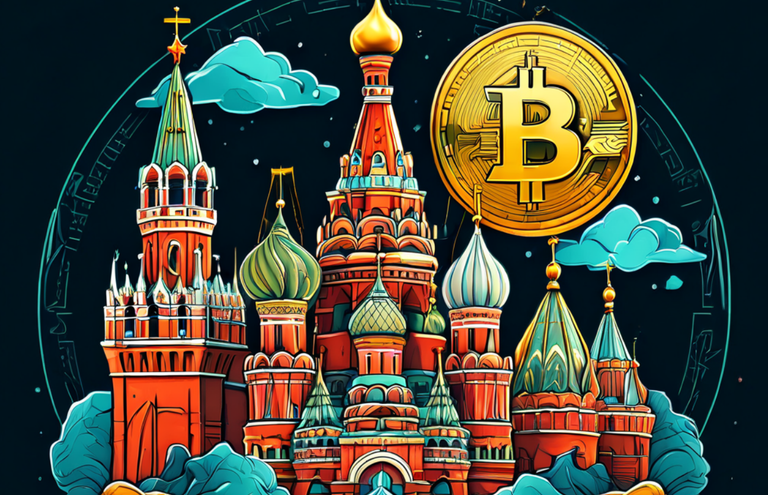Can Russia Save Itself By Legalizing Cryptocurrency For International Payments?
Interesting news came out of Russia today, as we learned that lawmakers passed a bill legalizing the use of cryptocurrencies for international payments. The new law is expected to take effect in September of this year.
In this post, we'll discuss whether the latest Russian decree applies to CBCDs or crypto, the world's increasing de-dollarization efforts, and the long-term implications of nation-state crypto adoption.
https://x.com/BRICSinfo/status/1818299393520345325
Sidestepping Sanctions
Russia has been doing everything possible to sidestep the US sanctions that were imposed on them after the war with Ukraine started in early 2022.
The sanctions have hindered Russia's ability to do business with several foreign banks, which face secondary sanctions if they proceed to engage with Russian entities.
The permissionless and borderless nature of cryptocurrencies make them a viable payment method for nations, organizations, or individuals who have been justly or unjustly blacklisted by financial institutions.
Crypto or CBDCs

The cryptocurrency community is excited about the move primarily because "number go up", but we need clarification - will Russia legalize the use of all public cryptocurrencies, or are they simply setting the stage for their own CBDC?
According to Reuters the new law includes rules for mining, indicating that it applies to proof of work cryptocurrencies.
The law is part of a package that also includes regulations on the mining of cryptocurrencies and the circulation of other digital assets.
Although the decision allows for international crypto payments, domestic crypto payments within Russia will remain illegal.
The new law will not lift an existing ban on cryptocurrency payments inside Russia.
While Russia takes steps towards crypto adoption, it still lags behind nations like El Salvador which made Bitcoin legal tender back in 2021, and Argentina which permits contracts to be settled in cryptocurrencies.
Later in this article, we examine if nation-state crypto adoption is feasible in the long-run.
De-dollarization Accelerates
Russia isn't alone in their de-dollarization efforts.
Last year, both Iraq and Venezuela took steps to limit dollar usage in their local economies. At the same time, China and Brazil ceased using dollars in their bilateral trade.
Iran also announced it will stop using the dollar for trade with African nations, while Saudi Arabia chose not to renew its decades-long agreement to sell oil only in US dollars.
Most recently, the Bank of Zambia in Africa announced that domestic transactions must be done using the nation's Kwacha currency. Meanwhile, China continues to sell US debt for gold.

With US debt surpassing $35 trillion dollars, and inflation still running hot despite the Fed raising interest rates to 5.25%, it makes sense that ever more institutions are dropping the dollar in favor of alternative currencies, including crypto.
We should be aware of the international community's increasing de-dollarization efforts so that we can protect ourselves from impending inflation by investing in alternatives such as gold, silver, and cryptocurrencies.
Long-Term Implications
Alongside the crypto industry, nations are also positioning themselves for the inevitable collapse of the dollar by transitioning to local currencies, gold, and crypto.
The bigger question is will nations be able to save themselves with crypto, or will this new technology eventually cause countries to split up into smaller regions?
Considering that traditional governments do not have total visibility or control over the growing crypto-powered economy, significant societal changes are inevitable.
When businesses and individuals can transact with one another peer-to-peer, the role of big government will be drastically reduced.
If you learned something new from this article, be sure to check out my other posts on crypto and finance here on the HIVE blockchain. You can also follow me on InLeo for more frequent updates.
Until next time...
Resources
Images Courtesy Of Venice AI [1]